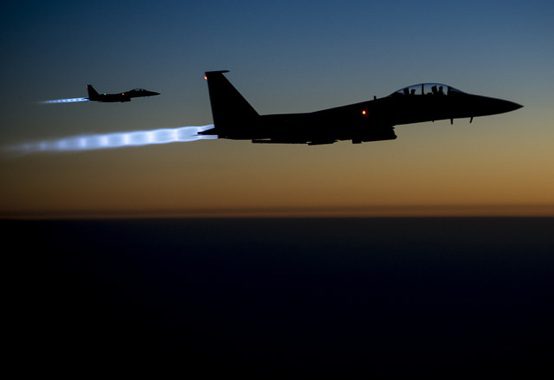Fueling the War on Yemen

Noah Feldman comments on the recent report that State Department lawyers expressed concern about possible U.S. complicity in Saudi war crimes in Yemen:
Then there’s the refueling. Since the Saudi bombing began in early 2015, according to the Washington Post, U.S. planes “have flown more than 1,000 refueling sorties and offloaded tens of millions of pounds of fuel to Saudi aircraft.”
It isn’t a legal stretch to say that refueling a plane that then bombs civilians is aiding and abetting the bombing. No refueling, no bombing. That’s a concern raised by Representative Ted Lieu, a California Democrat who is an Air Force reserve lawyer and knows what he’s talking about.
It would be difficult to see how fueling the planes that conduct the bombing campaign couldn’t be considered aiding and abetting of any crimes committed by them. This goes to the heart of what is wrong with U.S. involvement in the war: in the absence of this U.S. support, the coalition’s ability to carry out its bombing campaign would be severely limited if not eliminated all together. The administration pretends that it isn’t a party to the conflict, but the coalition’s air war depends heavily on the assistance that our government provides. Our government is helping to keep Saudi coalition jets in the air much longer than they would be otherwise, and that allows them to carry out many more attacks than they could on their own. In addition to making the U.S. potentially liable for war crimes, this assistance allows the coalition to continue its war far longer and with greater intensity than it would be able to do without it.
Comments